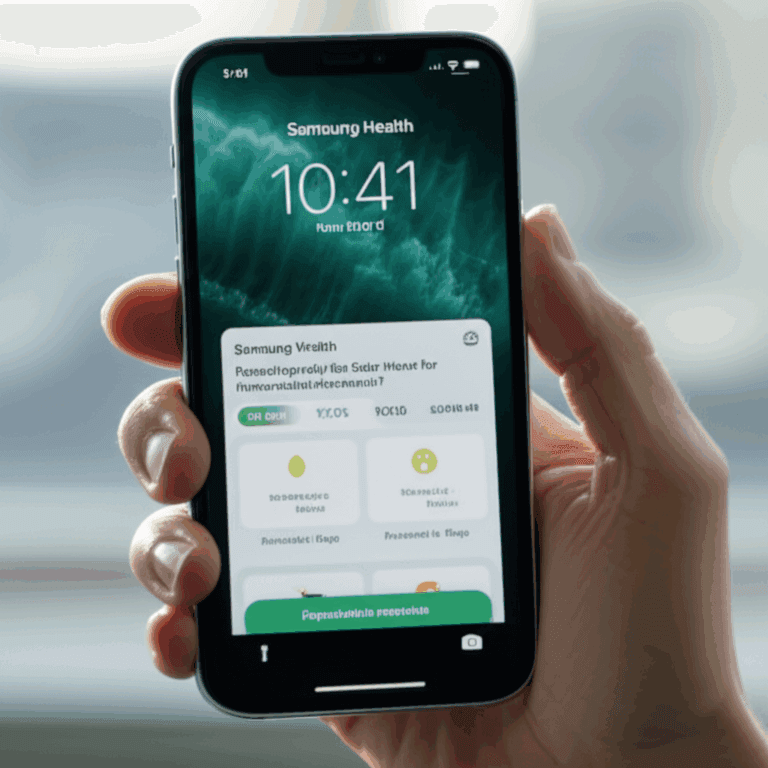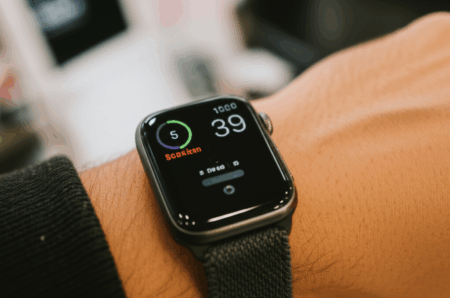Samsung is reportedly considering introducing a premium subscription tier to its Health app, following in the footsteps of companies like Garmin and Fitbit. This move has sparked debate among users, with concerns about potential paywalls for features that were previously free. Let’s delve into what this could mean for Samsung Health users and the broader fitness tech landscape.
What’s Happening?
According to recent reports, Samsung’s Head of Digital Health, Dr. Hon Pak, has confirmed that the company is “exploring a premium subscription model” for Samsung Health. This model would be similar to those offered by Fitbit Premium and Garmin Connect Plus, where users pay a monthly fee to unlock advanced features.
While Samsung hasn’t officially announced the subscription tier or its pricing, the news has generated discussions among Samsung Galaxy Watch owners and health-conscious individuals. The potential move comes as Samsung prepares to launch its One UI 8 Watch update, which will introduce new health-focused features.
Potential Features Behind the Paywall
Samsung has not yet specified which features would be exclusive to the premium subscription. However, reports suggest that advanced coaching features and deeper health insights could be among those paywalled. Some of the new features coming with the One UI 8 Watch update that might be included in a premium tier include:
- Bedtime Guidance: Personalized sleep analysis and recommendations to improve sleep quality.
- Vascular Load: Metrics to assess the stress on your circulatory system and heart health.
- Antioxidant Index: An assessment of antioxidant levels in the body.
- Running Coach: Advanced training plans and personalized coaching for runners.
It’s speculated that new Galaxy Watch models might get these features for free, while users with older models may need to subscribe to access them.
Why a Subscription Model?
Samsung’s potential move towards a subscription model aligns with a growing trend in the fitness tech industry. Companies are increasingly looking to generate recurring revenue streams through premium app features and services. For Samsung, a subscription model could provide a way to:
- Monetize advanced features: Offer more in-depth health insights and personalized coaching that require ongoing development and maintenance.
- Support older devices: Provide a reason to support advanced features on older devices that may not have the latest hardware.
- Compete with other platforms: Align with the subscription models of competitors like Fitbit and Garmin, offering a similar value proposition to users.
Concerns and Criticisms
The announcement has been met with mixed reactions from Samsung users. Some users are wary of “subscription creep,” where more and more features are moved behind a paywall over time, reducing the value of their existing devices. Others worry that essential features could eventually become part of the premium tier, forcing them to subscribe to avoid missing out.
Similar concerns were raised when Garmin launched its Connect+ subscription. Users expressed outrage over the idea of paying for features that they felt should be included with their premium-priced devices. Some users felt that Garmin was “paywalling” features that used to be included.
The Future of Samsung Health
It remains to be seen how Samsung will implement its premium subscription model and what features will be included. The company is expected to provide more details when it unveils the Galaxy Watch 8, potentially at an event in July 2025.
For Samsung Health to succeed with a subscription model, it will need to offer compelling value to users. The premium features must be genuinely useful and worth the monthly fee. Samsung must also ensure transparency in its pricing and feature offerings, and avoid alienating its existing user base.
Garmin’s Connect+ Subscription: A Case Study
Garmin’s Connect+ subscription, launched earlier in 2025, provides a useful example of the potential benefits and pitfalls of a premium fitness app tier. Connect+ offers features such as:
- Active Intelligence: AI-powered personalized health and activity insights.
- Performance Dashboard: A comprehensive view of training metrics and progress.
- Enhanced LiveTrack: More detailed live tracking for followers during activities.
Garmin charges $6.99 per month or $69.99 per year for Connect+. While some users have found the features valuable, others have criticized the subscription as unnecessary and overpriced.
One common concern is that Garmin might move existing features behind the Connect+ paywall in the future. This concern has led to skepticism among some Garmin users, who worry that the company is prioritizing profits over customer satisfaction.
Alternatives to Subscription-Based Health Apps
If you’re not keen on the idea of paying a monthly fee for health and fitness features, there are several alternatives to consider:
- Free Health Apps: Many free health apps offer a wide range of features, including step tracking, sleep monitoring, and basic workout tracking. Some popular options include Google Fit, MyFitnessPal, and Strava (free version).
- One-Time Purchase Apps: Some apps offer a one-time purchase option, giving you access to all features without a recurring subscription.
- Open Source Platforms: Open source fitness platforms like Gadgetbridge offer more control over your data and don’t rely on proprietary ecosystems.
- Focus on Hardware: Consider fitness trackers and smartwatches that offer a comprehensive set of features without requiring a subscription.
Ultimately, the best option depends on your individual needs and preferences.
The Bottom Line
Samsung’s potential move towards a premium subscription model for Health reflects the changing landscape of the fitness tech industry. While subscriptions can provide access to advanced features and personalized insights, they also raise concerns about cost and value. As Samsung moves forward, it will need to carefully balance the benefits of a subscription model with the needs and expectations of its users.







